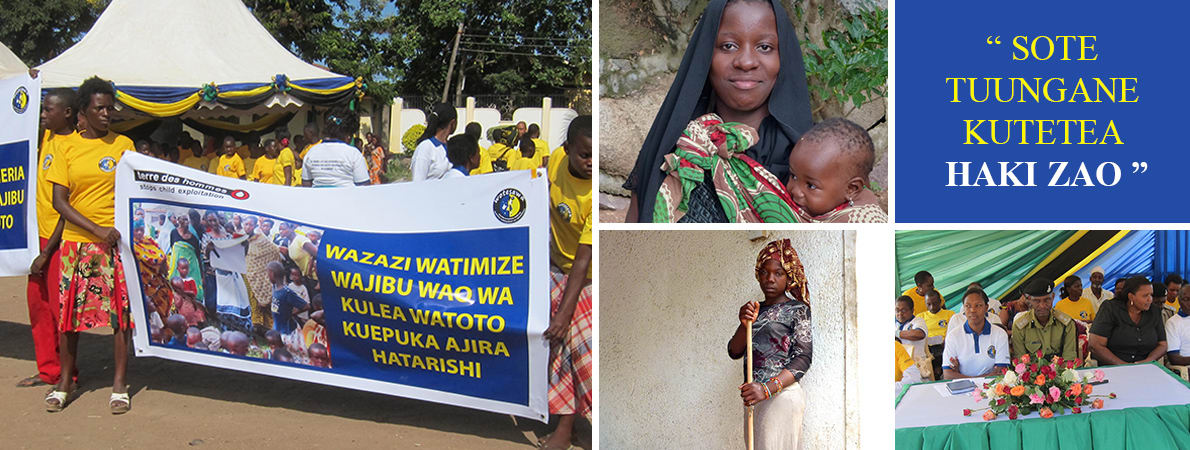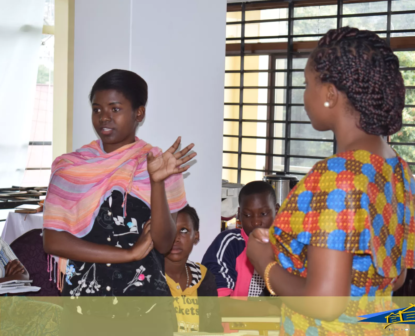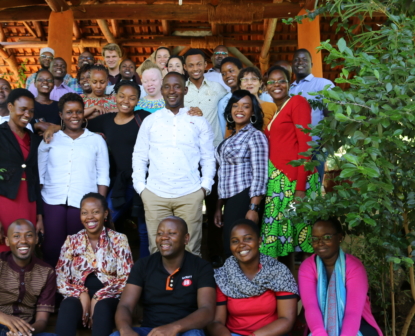Project
Space for Domestic Workers
-
Amount Funded
103,873 EUROProject Duration
01 Aug 2017 - 31 Jul 2018 -
-
Lead organisation
Partners
Tanzania Domestic Workers Coalition
-
This project is implemented jointly by Wotesawa and Tanzania Domestic Workers Coalition (TDWC).
WOTESAWA organisation which literally means ‘all are equal’ in Swahili, has evolved into an established and unique forum in which child domestic workers are represented and are able to address their interests and rights as one of the most vulnerable groups to abuse and exploitation in Tanzania. Wotesawa also acts as bridge between child domestic workers, government leadership, employers and law enforcers in advancing the interests of child domestic workers.
The Tanzania Domestic Workers Coalition (TDWC) is a registered non-government organisation based in Mwanza. It was set up by 23 CSOs with the aim of building a strong movement to advocating for the rights of Children domestic workers (CDWs).
-
Organisation
This project is implemented jointly by Wotesawa and Tanzania Domestic Workers Coalition (TDWC).
WOTESAWA organisation which literally means ‘all are equal’ in Swahili, has evolved into an established and unique forum in which child domestic workers are represented and are able to address their interests and rights as one of the most vulnerable groups to abuse and exploitation in Tanzania. Wotesawa also acts as bridge between child domestic workers, government leadership, employers and law enforcers in advancing the interests of child domestic workers.
The Tanzania Domestic Workers Coalition (TDWC) is a registered non-government organisation based in Mwanza. It was set up by 23 CSOs with the aim of building a strong movement to advocating for the rights of Children domestic workers (CDWs).
-
Project
WoteSawa and its partner the Tanzania Domestic Workers Coalition (TDWC) seek to address issues facing child domestic workers by adopting an inclusive approach, whereby primary beneficiaries themselves; being children and young domestic workers are put at the forefront of project implementation. This is a key empowerment and sustainability strategy within this project. Facilitating children to have a voice is a prerequisite for success and this is how WoteSawa and TDWC implement to help amplify the Voices of Children and Young Domestic Workers# in Lake Zone, comprising of six administrative regions. The two partner organisations are based in Mwanza Region, which is the hub of the intervention.
The project seeks to contribute to the reduction of abuse and exploitation among vulnerable Child and Young Domestic Workers (CYDW), by strengthening their capacity to assert their rights through advocating for the amendment and effective implementation of pro-CYDW laws, rules, policies and positive norms as well as to increase community participation and awareness to improve the status and working conditions of CYDWs.
-
-
WoteSawa and its partner the Tanzania Domestic Workers Coalition (TDWC) seek to address issues facing child domestic workers by adopting an inclusive approach, whereby primary beneficiaries themselves; being children and young domestic workers are put at the forefront of project implementation. This is a key empowerment and sustainability strategy within this project. Facilitating children to have a voice is a prerequisite for success and this is how WoteSawa and TDWC implement to help amplify the Voices of Children and Young Domestic Workers# in Lake Zone, comprising of six administrative regions. The two partner organisations are based in Mwanza Region, which is the hub of the intervention.
The project seeks to contribute to the reduction of abuse and exploitation among vulnerable Child and Young Domestic Workers (CYDW), by strengthening their capacity to assert their rights through advocating for the amendment and effective implementation of pro-CYDW laws, rules, policies and positive norms as well as to increase community participation and awareness to improve the status and working conditions of CYDWs.
-
Over the course of the project, 240 (226 Females, 14 Males) domestic workers from four Wards (Kawekamo, Kitangiri, Nyasaka and Kiseke Wards) were trained on human rights, particularly Child and Young Domestic Workers (CYDWs) rights, law, policies, leadership and negotiation skills. The training taught participants the right to have contracts with their employer, leave, and fair remuneration; they well also reminded about their responsibilities and laws protecting child domestic workers, leadership and negotiation skills. The training sessions are expected to give CYDWs confidence to defend their rights and interests and protect themselves against abuse, exploitation, and violation. As a result of the training, 39 CYDWs have started to discuss their rights, employment contracts, fair remuneration, and leave with their employers. 35 of the 39 have been given employment contracts by their employers. Contracts are an indicator of decent working conditions and salary, 20 of the CDYWs have been increased to 40,000 (the minimum wage for domestic according to the government wage order of 2013). In addition, 150 CYDWs have shared their training sessions’ learning with fellow domestic works.
Wotesawa held an awareness and advocacy meeting which was attended by 50 (23 Females. 27 Males) participants representing various government bodies from all 4 Wards they included: Councilors, Ward Executive Officers, Village Leaders, Mtaa Executive Officers, Development Officers and Social Welfare Officers. As a result of this meeting, local leaders established procedures that requires every street to register all domestic workers to the local council office.
Wotesawa researched the laws relating to or protecting the rights of CYDWs in the country. This was shared to various organisations and at local government authorities located in the Mwanza region.
In addition to the training session and working with the local government, Wotesawa produced various materials such as calendars, banners, stickers, and posters whose objective is to create awareness about the violence against CYDW.
In the future, Wotesawa will continue advocating for changes to the law and working towards aligning with international standards of compliances as far as domestic workers are concerned. In addition, they are creating safe spaces for young domestic workers and working with the government on these issues.
-
News





